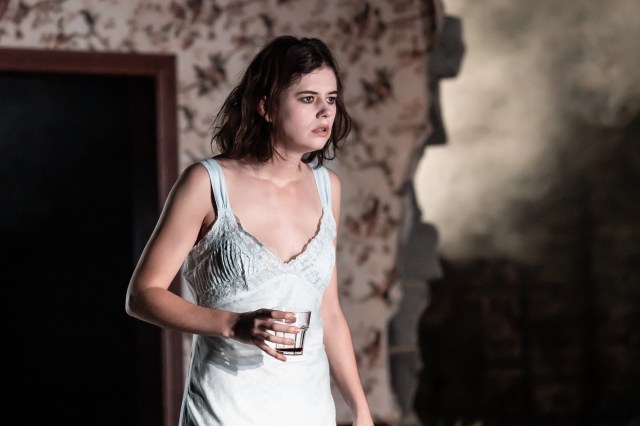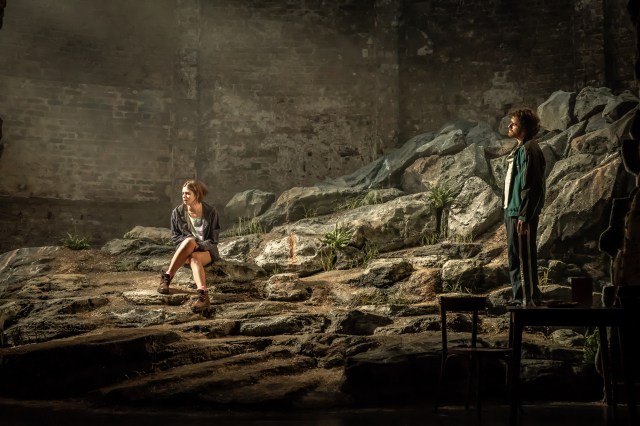Portia Coughlan at the Almeida Theatre – review
Carrie Cracknell’s compelling revival runs until 18 November

Marina Carr’s 1996 drama, the second in her Midlands trilogy, has weathered well on the evidence of this dark, detailed and disturbing revival by Carrie Cracknell, in her first production for the Almeida since 2016’s Oil.
It’s the 30th birthday of Portia, a troubled woman who’s haunted by the loss of her twin brother 15 years ago. It soon becomes apparent that she’s broken to the point of dysfunction – she drinks heavily, sleeps around and largely ignores her young children (the play was ironically commissioned by Dublin’s National Maternity Hospital).
Alex Eales’ two-zoned set cleverly echoes the state of Portia’s mind; the back wall of the Coughlans’ kitchen is ripped out to reveal a barren landscape where her brother sings ethereally from beyond the grave, and she meets for dalliances with local drop-outs. The music, composed by Maimuna Memon, is lyrical and moving; in one especially poignant moment, Portia duets with her longed-for sibling (beautifully voiced by Archee Aitch Wylie).

In a magnetic central performance, Alison Oliver conveys the sense that Portia’s nihilism – nearly every action she makes is negative – is the driving force of her eloquence. She’s an artist of self-destruction, speaking in poetry even as she stares down the barrel of her own demise. Her reference to “a wolf’s tooth growin’ in me heart” is as achingly powerful a metaphor for depression as you’ll find. Oliver exudes all the blaze of beauty, brilliance and madness that marks Portia’s final hours.
The rest of the ensemble also have plenty to get their teeth into. There’s a spectacularly fiery wake, including a scene-stealing turn from Sorcha Cusack as Portia’s embittered grandmother Blaize, whose sour-tongued toasting culminates in her smashing a glass against the wall. The local Country and Western-themed bar – which appears in an explosion of colour from a hatch on the wall – is a rare source of jollity, with creepy barkeeper Fintan (Conor MacNeill) and Portia’s eye-patched friend Stacia (Sadhbh Malin) making a salty double act.
There’s also strong support from Charlie Kelly as Portia’s ne’er-do-well lover Damus, Kathy Kiera Clarke and Fergal McElherron as the unlikely couple Maggie May and Senchil (“He wasn’t born, he was knitted,” says the former of the latter), and Mairead McKinley and Mark O’Halloran as Portia’s fractured, fractious parents. All flawlessly capture the flat, at times almost indecipherable dialect of County Offaly.
The play is intriguingly structured. The inevitable deed is done by the interval, powerfully shown as Portia’s wet body is dredged from the river, meaning the second half becomes a retrospective of scenes leading up to it, including a rare moment of tenderness as Portia attempts to explain her plight to heartbroken husband Raphael (an outstanding Chris Walley).
Some will find it too oppressively bleak; there is very little in the way of hope or redemption, and Cracknell doesn’t attempt to gloss this over. But once it takes hold it becomes a compelling and irresistible portrayal of a woman in freefall, and the people helpless to catch her. Its status as a modern classic seems assured.
















